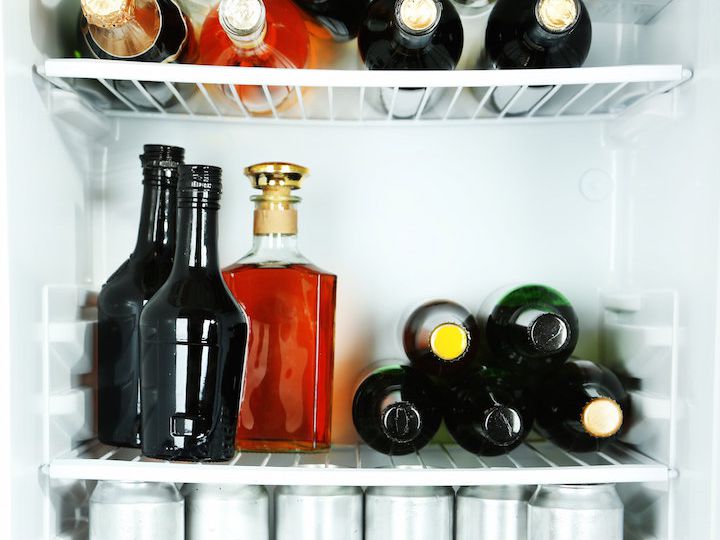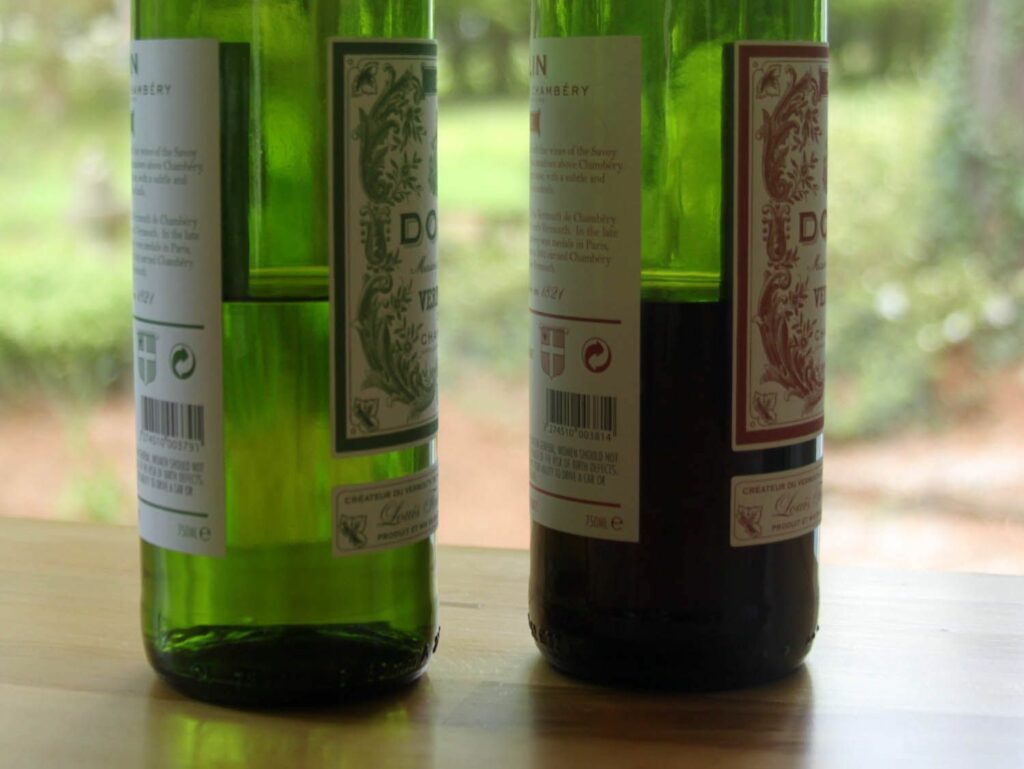Can old vermouth make you sick?
Jump To:
Although old vermouth won’t make you sick, drinking old vermouth can make your stomach ache. Old vermouth can also make your Negroni or Manhattan taste unpleasant, so be careful when mixing your cocktails.
Vermouth can be stored indefinitely, but it will lose its flavor and texture over time. If the product isn’t kept in a proper manner or the storage environment is not ideal, it loses its flavor and aroma. Flavor loss can also be accelerated by a leaky bottle or poorly sealed container. Cooking with vermouth is the best way to use it if it’s not tasty as a drink.
How to store vermouth?
You’ve just bought Cinzano vermouth to make martinis and Manhattans. You don’t drink cocktails very often so you begin to wonder if the vermouth will go bad after a few months. Vermouths can last quite a while if kept in good condition. Vermouths are essentially fortified wines, so they have a longer shelf life than your average wine. This is especially true if the bottle has been opened.
Well, if you want your vermouth to be intact with the taste and safe to consume, it is important to know how to store vermouth properly. Here are some ways to store vermouth in different ways and forms.
- Vermouths should be stored in the same manner as wine. This means that vermouths should be kept in cool, dark areas away from direct sunlight and heat.
- A pantry is the best option, but you can also use a cabinet in your kitchen or liquor cabinet. You should avoid liquor cabinets with glass doors. They are not ideal for long-term storage of alcohol.
Vermouth In The Fridge – Does vermouth go bad in the fridge?

- When not in use, seal the bottle tightly after opening it.
- Keep the bottle in the fridge unless you intend to finish the entire bottle within a day. Vermouths should, as with all wines, be kept refrigerated once they are opened.
- It won’t spoil if it’s not kept in the refrigerator. However, the quality of the product will be lower if it is kept in the fridge. Also, don’t leave an open bottle of vermouth in your pantry without checking it first.
Unopened Vermouth – Does unopened vermouth go bad?
- An unopened bottle can last for up to 4 years if stored properly.
- Vermouths taste great when fresh but they are also good to keep in your cellar or pantry for a while. The best vermouth should be consumed within 3-4 years after bottling.
- Store unopened vermouth in cool, dark areas away from sunlight to maximize its shelf life. However, you should always verify the quality of any old bottles before drinking.
Opened Vermouth – How long does vermouth last once opened?
Your vermouth should be kept in the fridge once it is opened. The vermouth will keep in good condition for approximately a month and then it will be in a passable state for approximately two months. You can either invite friends to visit or give it away if you don’t use it within three months.
Vermouths that are opened immediately can last for a surprising amount of time while still maintaining their quality. They can last for weeks or even months.
Sweet Vermouth – Does sweet vermouth go bad?

- It doesn’t matter if it’s dry vermouth (for making Fifty-Fifty Martinis), sweet red vermouth for negronis, or the in-between (for creating a new twist to a negroni), it should go in the fridge.
- If the smell is bad or it has changed in color it’s best to get a new bottle. Vermouth’s taste is another indicator of its quality. Vermouth should be bright and aromatic. Old vermouth will taste flat and bland.
- Vermouths, as well as other wines, should be refrigerated after opening. You won’t have any problems with it going bad if you don’t put it in the fridge. However, the quality will decrease much more rapidly if you chill it in the refrigerator rather than in the freezer.
How to tell if vermouth is bad?

Microbial Spoilage.
Bacterias and mold love to live in moist areas where there is plenty of sugar. The alcohol and aromatic herbs used in the production of vermouth can help fight microbial growth. However, this doesn’t mean that bad stuff won’t eventually grow. Acetic acid bacteria are the main culprit in most cases. These bacteria digest alcohol in wine and gradually turn it into vinegar.
Oxidation.
Terpenes and esters react with oxygen to produce reducing agents. These phenols are often found in the skins, stems, and seeds of grapevines and are responsible for red wine’s color and astringency. Red wines have a higher level of these phenols which makes them more resistant to oxidation. Vermouth, which is almost always made from a white wine base (mostly), is particularly susceptible to oxidation.
Loss in the aroma.
You can pour vermouth from a bottle, and then replace it with air. Volatile aromatics will escape from the wine, filling the headspace. This makes your vermouth less aromatic.
If the liquor develops an off smell, changes in color, or if you notice any mold or other contaminants, it is best to throw it out. This happens very rarely, and you will probably never come across a wine that has been spoiled.
It is more likely that your Martini bottle will not be safe to drink but it won’t have the same quality. This happens most often if you keep an open bottle of vermouth for a prolonged period. This is why you might find your flavor dull or your expensive vermouth tastes less like a cheaper one.
It’s up to you to decide what you do with this bottle. It might not be a good idea to use it in a Negroni, or any other cocktail that uses a lot of vermouths. However, it might be a good idea to test it in a lower-priced cocktail that has fewer ingredients. You can always throw it out for quality reasons.